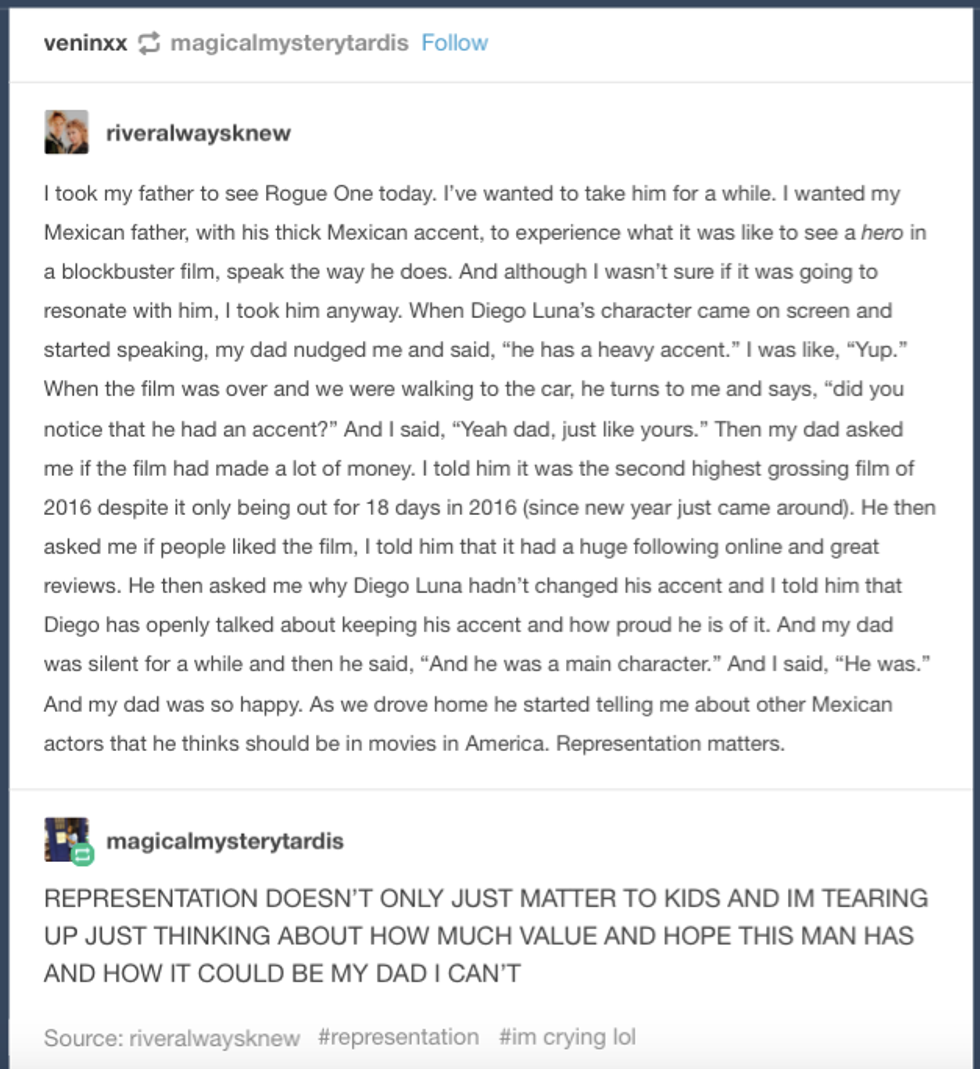The other night I was scrolling through Tumblr, avoiding more important responsibilities such as writing my grad school essay and doing homework for my winter class, and I found a heartwarming post that needs to be shared. The post received over 20,000 shares on Tumblr, and a few days later, major media sources covered the story. I'd like to say I found it first, but the fact that it is actually getting attention in the first place is more important. This post illustrates just how important representation is in the media and how much of an impact it makes on minorities who aren't used to seeing people who look like them on the big screen. I touched upon the importance of Latino representation in a previous article, however, this issue is very important to me and I feel as though it needs to be reiterated because there is still a long way to go in this fight for representation.
I have not yet seen Rogue One (yes, I know, I'm terrible), and I had never heard of Diego Luna before reading this post. So naturally, I Googled him in an effort to find an interview he did so I could hear his accent for myself. Luna is known for refusing to hide his thick, Mexican accent when being offered roles, and this is a HUGE stand to take especially when Hollywood is known for "whitewashing" in their movies. And the fact that Luna played a major character in the film is an even greater bonus.
SEE ALSO:8 Latinos Who Are Making A Difference
I found this girl's story so heartwarming because I could relate to it. I, too, have a dad with a very thick accent and growing up, I watched first hand how differently he was treated because of it. I also have grandparents and many other relatives with accents who have lived in the United States for a long time, but still have their native tongue attached to their voices when they speak. Hispanics, as well as other minority groups, are not used to being represented in the media. And when we are being represented, it is usually an embarrassing or completely distasteful stereotype. And when you turn on the TV or go to the movies and are constantly seeing perfect English speaking white actors, it reinforces the notion that you need to not only look like them, but also sound like them, too. But if you don't, you don't belong here and should be treated differently because of it. Does this rhetoric sound familiar?
I hope to read many more stories like this in 2017, and I hope to write more articles about rising Hispanic/Latino stars who are giving a voice to the minority communities that so desperately need one.

























